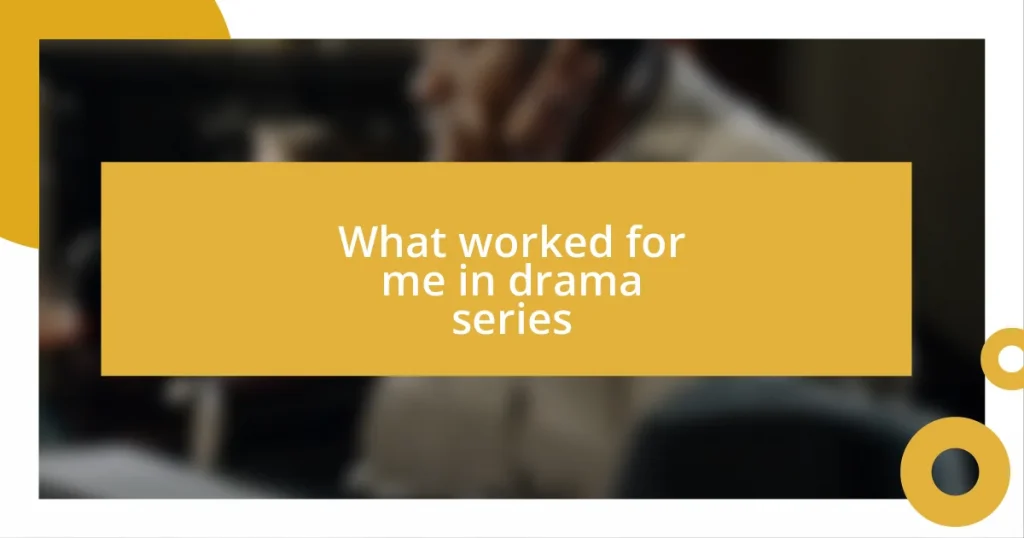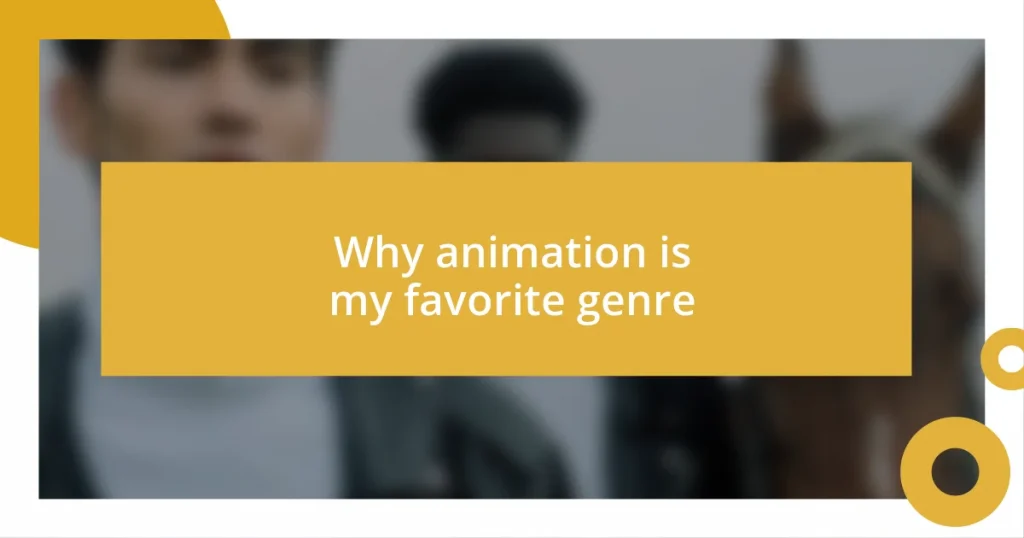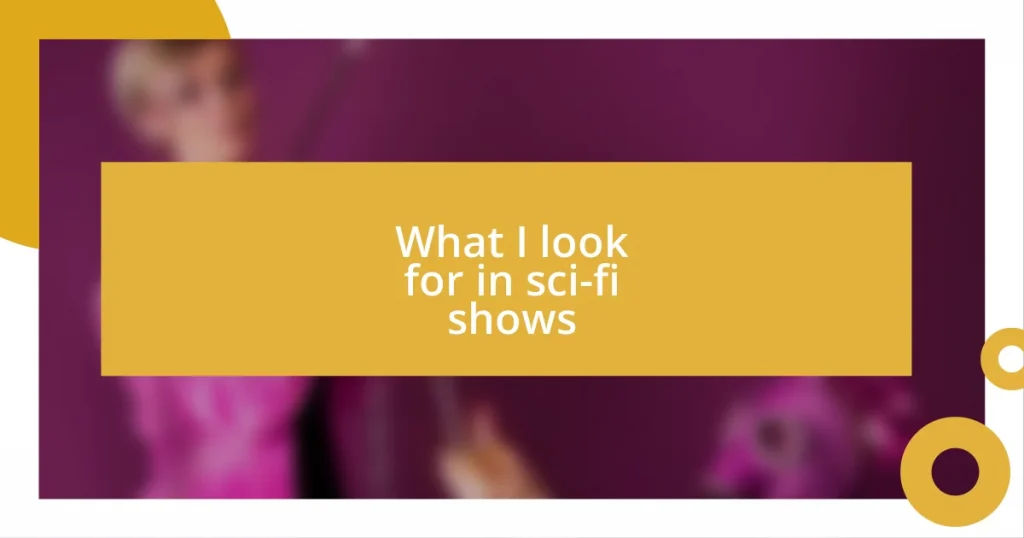Key takeaways:
- Comedy acts as a coping mechanism, helping audiences confront vulnerabilities and reevaluate perspectives on serious topics.
- Successful comedians utilize techniques like timing, relatability, and self-deprecation to engage audiences and create emotional connections.
- Humor has practical applications in daily life, fostering collaboration, strengthening relationships, and providing a lighter approach to challenges.
Key Takeaways from Comedy Specials
One key takeaway from recent comedy specials is the way humor can serve as a coping mechanism for life’s challenges. I vividly remember watching a special where the comedian shared a story about his struggles with mental health, echoing sentiments I often grapple with. It made me wonder: isn’t it fascinating how laughter can resonate deeply, helping us confront our own vulnerabilities while also allowing us to connect with others?
Additionally, many comedians use their platforms to tackle important social issues, from race to gender identity. I was particularly struck by a performance where the comic blended humor with poignant commentary on inequality, making me chuckle while simultaneously reflecting on my own perceptions. It made me ask—how often do we overlook the seriousness behind comedy? That thought definitely lingered with me long after the show ended.
Lastly, I’ve noticed that the art of storytelling is central to many successful comedy specials. One comedian’s ability to weave their life experiences into relatable narratives kept me hooked. It reminded me how powerful personal anecdotes can be, essentially crafting an emotional bridge between the performer and the audience. Have you ever found yourself laughing at a story that felt like it could have been yours? That connection is what makes comedy not just entertaining, but transformative.
Impact of Comedy on Perspective
Comedy has a remarkable ability to shift our perspectives on serious subjects. While watching one recent special, I found myself laughing about a topic I usually find uncomfortable—aging. The comedian’s lighthearted take transformed my anxiety into amusement, illustrating how humor can help us reframe our fears. It’s amazing how a simple joke can act as a lens, allowing us to see our worries in a new light.
- Comedy can normalize difficult conversations, easing the stigma around mental health.
- Laughter can be a powerful tool for empathy, fostering understanding of diverse experiences.
- When comedians approach sensitive topics with humor, it invites audiences to reconsider their beliefs.
- Relatable stories often spark personal reflections, prompting us to evaluate our perspectives on life.
- Humor encourages openness, enabling us to explore topics that might be otherwise uncomfortable.
In my experience, this transformation is not just beneficial; it’s essential for personal growth. I recall a performance where the comedian tackled the complexities of family dynamics, and it pushed me to reevaluate my own relationships in a fun yet profound way. That unexpected introspection is one of the most valuable impacts comedy can have on our lives.
Techniques Used by Successful Comedians
Successful comedians master various techniques that elevate their performances. One prevalent approach is the use of timing and delivery, which I find absolutely vital. I remember watching a stand-up special where the comedian would pause just before punchlines, creating this palpable tension that made the eventual joke land even harder. It’s a simple technique, but it can transform a decent joke into a gut-busting moment.
Another technique I often observe is the skillful use of relatable material. I once saw a comedian riffing on the quirks of modern dating, and my friends and I were in stitches because it mirrored our own experiences. When comedians tap into everyday situations, they create a sense of shared reality that resonates deeply with audiences. This relatability often transforms laughter into a form of community bonding.
Moreover, successful comics frequently employ self-deprecation as a strategy. This technique allows them to humanize themselves, making them more approachable. I distinctly recall a comedian who joked about their own cooking disasters; it not only had me laughing but also made me feel a connection with their imperfections. When a comedian opens up about their flaws, it feels not just funny but refreshingly honest, inviting the audience to laugh at themselves too.
| Technique | Description |
|---|---|
| Timing and Delivery | Effective pauses heightening the impact of punchlines. |
| Relatable Material | Connecting with audiences through shared life experiences. |
| Self-Deprecation | Using personal flaws to foster relatability and honesty. |
Audience Engagement Strategies in Comedy
One engaging strategy that comedians often use is direct interaction with the audience. I remember attending a local comedy show where the comedian walked into the crowd, asking playful questions that made everyone feel included. It was incredible to see how this not only broke the ice but also turned the performance into a shared experience, drawing laughter from the unique responses of the audience members. Have you ever noticed how that spontaneous energy adds a special layer of excitement to a comedy set?
Another powerful technique involves building rapport before diving into punchlines. During a recent special, the comedian spent time sharing small, personal stories that gradually warmed up the audience. By establishing a friendly atmosphere, the laughs flowed more freely, allowing us to connect with him on a deeper level. It’s fascinating how establishing trust can transform the dynamic and ensure that everyone is on the same wavelength.
Lastly, callbacks are a fantastic method for engaging the audience over the course of a performance. I recall a comedian who cleverly referenced an earlier joke multiple times throughout his set, creating a sense of continuity that had us in stitches every time. It made me realize how humor can create bonds that carry through the performance, giving returning jokes an even greater impact. That sense of anticipation builds excitement—don’t you love it when a comedian ties everything together like that?
Applying Humor in Daily Life
Every day, I find moments where humor can completely shift the atmosphere, whether it’s at work or home. Just last week, we had a particularly tense meeting, and I couldn’t resist dropping a light-hearted comment about our over-caffeinated brainstorming sessions. The laughter that followed broke the tension and opened the door for more creative ideas. It’s amazing how a little humor can foster collaboration and lift spirits in everyday situations.
I also believe that sharing funny personal experiences can strengthen connections with those around us. I remember a chat with a friend who was getting stressed about his upcoming presentation. I told him about the time I accidentally walked onto a stage, mid-rehearsal, wearing mismatched shoes. The relatable absurdity of my story not only lightened his mood but also reminded him that we all have our blunders. Doesn’t it feel good to laugh about our mishaps together?
Using humor as a coping mechanism is something I value deeply. When life’s challenges arise—like the chaos of everyday obligations—finding the funny side can make the load feel a bit lighter. For instance, during a particularly busy week, I joked with my partner about our dinner plans consisting of takeout boxes and dessert first. This playful banter turned what could have been a stressful moment into a shared laugh, reminding us that it’s the little things that matter. So, how do you handle life’s curveballs? I find that humor often provides the best perspective.












